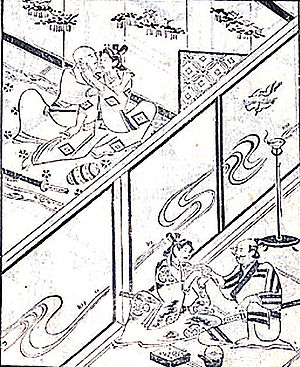AllieBaba
Rookie
- Oct 2, 2007
- 33,778
- 3,927
- 0
- Banned
- #301
To paraphrase Ali Bubba above,
Therefore your hate/fear-of-the-unknown - which is religiously inculcated - MUST be manifestly obvious, even to an inbred Bubba such as you, as being nothing but the passed on bigoted sub-conscious self-loathing of perverted priests, who adore dolling themselves up in mummy's dresses and diddling cherubic altar boy's bums.
Subsequently - going by your bigoted unscientific philosophy - I also feel entirely justifed, just as you do with poofters, in wanting to see you castrated with a rusty gap-toothed hacksaw blade and then slowly stoned to death by the normally indecent folk from my home town.
I don't recall bringing religion into the mix. That I leave to those who hate. I simply contradicted the incorrect assumption that gayness is hard wired. It isn't, according to the myriad studies performed so far.
Nor am I bigoted. That's your own assumption based upon your own hatred of those who have different views than your own (also known as, hey, bigotry). I've not proposed any punishment for gays. And you can't castrate me, because I'm a woman. Darn. You'll have to think up some other hideous torture for me, while you're sitting around thinking elevated, scientific and un-bigoted thoughts.
I maintain that if you look at this "scientifically", as I have been, the facts tell you that homosexuality is outside of the world-wide norm. I'm racking my brain even trying to think of small pockets of population where it's "norm" and outside of ancient Greece and current day San Fran, I can't think of a single population where it's universally accepted and condoned. Or even practiced by a large sector of the population.
But I'm sure you feel better after spewing.






